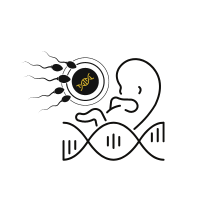Before integrating immune therapy into fertility treatments, a thorough diagnostic evaluation is crucial. This evaluation involves assessing both the reproductive health of the couple and immune-related factors. Specialized tests, including immune profiling, antibody screenings, and cytokine evaluations, are conducted to identify potential immune dysregulations or autoimmune disorders that may be impacting fertility.
The following immune factors can significantly impact fertility and pregnancy outcomes:
- Antiphospholipid Antibody (APA): APA tests determine the presence of antibodies that can directly affect blood vessels, placental cells (trophoblasts), and preimplantation embryos. The presence of APA can cause clotting in placental blood vessels, leading to placental insufficiency and subsequent pregnancy loss.
- Antinuclear Antibodies (ANA): ANA tests identify the presence of antibodies that can have a toxic effect on preimplantation embryos. Elevated levels of both APA and ANA in the same individual may be a result of antibodies forming after cell death, as proposed by recent studies.
- Antithyroid Antibodies (ATA): ATA tests reveal the presence of antibodies associated with increased secretion of pro-inflammatory cytokines by T cells in the uterine lining. ATA may indicate an underlying dysfunction of T cells that directly affects implantation.
- Lupus Anticoagulant, Embryo Toxicity Assay (ETA): ETA tests identify factors that can cause embryo death. These circulating embryotoxic factors have been linked to recurrent pregnancy loss, unexplained infertility, in vitro fertilization failure, and infertility related to endometriosis.
- Natural Killer Cell Activity (NK): A reproductive immunophenotype measures the percentage of circulating natural killer (NK) cells. Elevated percentages of NK cells in circulation are associated with the loss of chromosomally normal pregnancies. NKA assays evaluate the killing function of circulating NK cells and the suppressive effect of intravenous immunoglobulin (IVIg) on their activity.
Understanding these immune factors through appropriate tests is crucial for diagnosing immune-related infertility and determining the most suitable treatment approach. It allows healthcare providers to design personalized treatment plans that address the specific immune dysregulations contributing to fertility issues.




